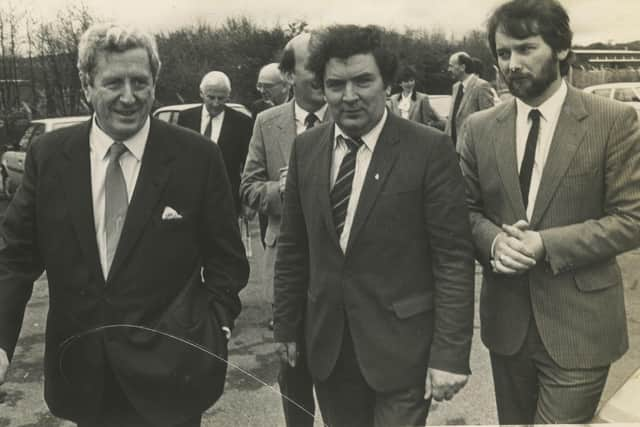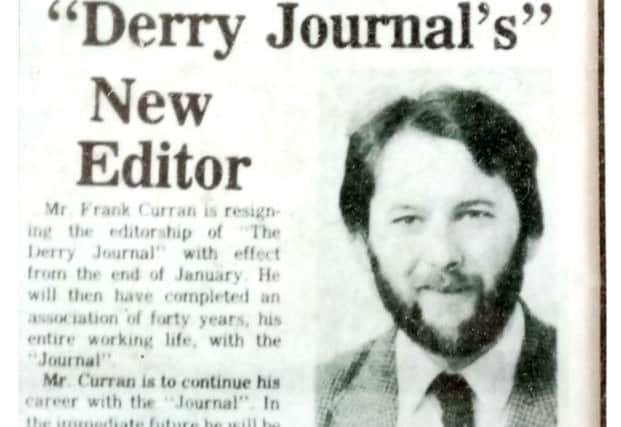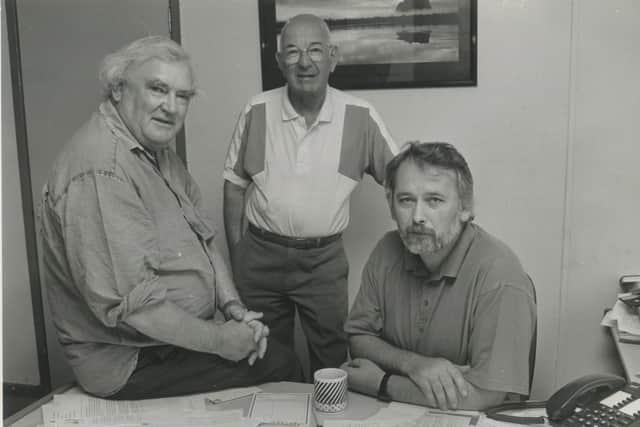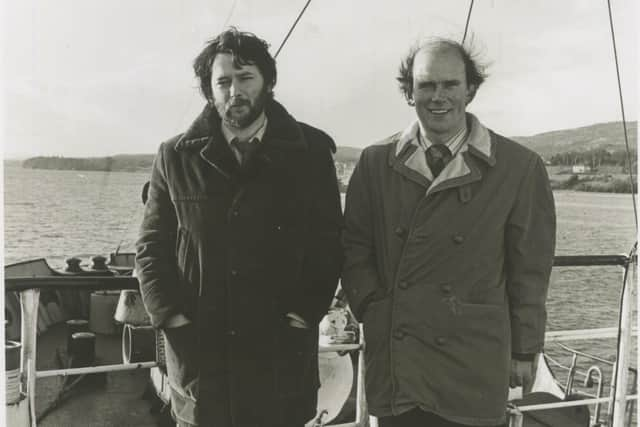War, Peace and the Derry Journal : John Hume 'walked on water'
and live on Freeview channel 276
I was sitting at home enjoying a quiet Saturday afternoon relaxing when Rosie called out that Hume was on the phone. I wasn’t exactly dancing with delight. Free time was rare and all the more precious because of that. Never one for a lot of small talk, John got straight to the point: ‘Are you about tomorrow night? I am hosting a dinner in Restaurant St John. Bring the wife.’
It turned out Hume had invited us to a private dinner for Kerry Kennedy, daughter of Robert F. Kennedy and niece of President John F. Kennedy. Back then in Irish society the Kennedys were on a par with the Holy Trinity. There was fawning coverage of them in the media, colour articles taking up full pages in the various Sunday papers indicating they were the nearest thing we had to Irish royalty. That they were also major players in the political life of the most powerful nation on the planet was also not to be sneezed at.
Advertisement
Hide AdAdvertisement
Hide AdAmongst the ‘A’ list guests at an exclusive little restaurant that night were a Finnish cabinet minister, at least one ambassador – possibly two, and the playwright Brian Friel whose play ‘Translations’ had opened to world acclaim on Broadway some time earlier.


This was normal Hume territory, a man up among the gods. His status, already high, rose, almost perceptibly – nearly on a daily basis – so much so that he subsequently was to become Irish Man of the Century, win the Nobel Peace Prize, and be awarded honorary doctorates from just about every prestigious university in the world.
Let’s not forget either this was a man on first name terms with presidents, prime ministers and media moguls. In every sense he really was a friend of the rich and powerful.
And if that wasn’t enough, to top it all he was the local MP as well as being leader of the North’s biggest nationalist party, the SDLP.
Advertisement
Hide AdAdvertisement
Hide AdYet, for some reason that I have never got to the bottom of, we never quite clicked. I didn’t really get on all that well with him. I don’t know if it was a clash of personalities or whether I didn’t see the world from his perspective, but we were to be tuned to different frequencies on many issues, both political and social.


In terms of being Editor of the Journal, the smart move on my part would have been to ensure I was in his inner circle, to keep on his right side – but in truth I never made much of an effort. To this day I can’t give a rational answer but somewhere in the back of my head I believed the Alex Ferguson dictum during the Manchester United glory days was the correct one; Fergie held that a bit of distance from the players was vital for perspective.
I needed that distance from Hume, as I was of the opinion the paper had almost crossed over from reporting to hagiography when it came to coverage of him.
As far as I could ascertain, Hume was God in Derry. It seemed to me that many people were accepting his judgements and opinions without question. I had first-hand experience of this when on one memorable occasion in my presence he totally slapped down a senior SDLP person who didn’t even so much as raise a word by way of objection after making what I regarded as a totally legitimate point. I thought, what a doormat to accept being slapped down publicly like that.
Advertisement
Hide AdAdvertisement
Hide AdI never had that kind of personality to accept this kind of approach. I believed we had the right – a duty even, high-minded as that might sound – to report impartially when other voices criticised him. Or when others offered a different analysis or viewpoint. Because of that we clashed on occasions.


I am not suggesting for a second this was all Hume’s fault. Far from it. My own views, attitude and personality probably had a lot to do with our clashes.
From the outset I was aware Hume had a very tight-knit circle, and power in Derry belonged within that circle. His grouping consisted in the main of members of the professional classes - doctors, lawyers and accountants - many of whom, or so it seemed to me, reflected the views of only a certain section of the community.
They all grew up together, went to the same school, knew each other, drank together, partied together, and their families frequently intermingled at weddings, funerals and the various religious and social occasions.
Advertisement
Hide AdAdvertisement
Hide AdAs Derry was pretty parochial back then, being a Donegal man probably didn’t help. For me, it was all new and so, so very different from life in the South.


It took time to get my head around how different society twenty miles up the road from where I was reared really was.
Partition had created many differences, not least the evolution of two very different ways of educating children. In the South free education had opened doors to everyone, irrespective of financial restrictions or academic ability. Success was available in Donegal to all academically – I, personally, was walking, living proof of this – whereas in the North the 11-Plus ‘selected’ the few at the top and channelled the rest to be, in the main, the worker bees of society.
It struck me quite forcibly that this streaming system was perfectly acceptable to the Catholics who passed the 11-Plus. Indeed, as far as I was concerned, they were way too comfortable with this. And that included the Catholic clergy.
Advertisement
Hide AdAdvertisement
Hide AdNon-threatening Hume was their man as, indeed, he was the man of the middle classes in their private homes on the Culmore Road.
In the working-class estates like Creggan and Bogside, which bore the brunt of much of the British security authorities oppression, the view was far from uniform. I learned this within weeks of taking over. It was clear the ground was beginning to shift away from the previously all-dominant SDLP, that they didn’t speak for everyone. It was abundantly clear too many of the folks who lived in the huge estates felt left behind and alienated. The fact I could catch on to this so quickly caused me some surprise when I found the SDLP people I spoke to seemed oblivious to it.
War, Peace and the Derry Journal by Pat McArt, published November 2023, is available from bookshops and colmcillepress.com, priced £20/€25.